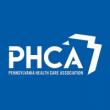
About three-quarters of Pennsylvania’s long-term care providers who responded to a recent survey say they have limited the number of people they accept, with about half saying they have waiting lists.
The homes say it’s mostly due to their workforces having shrunk by an average of about 20% since early in the COVID-19 pandemic.
“A direct care workforce shortage means that a state with one of the oldest populations in the country will be unable to meet its obligation to our senior citizens, forcing elderly patients to remain in hospitals, or return home without the resources and support they need,” said Zach Shamberg, CEO of the Pennsylvania Health Care Association.
The association represents for-profit nursing homes, assisted living facilities and personal care homes.
It said it recently surveyed its members on topics including the availability of workers. The survey generated responses from managers at 50 nursing homes and 14 assisted living and personal care facilities.
Pennsylvania has about 700 skilled nursing homes and more than 1,000 personal care and assisted living facilities. Many are non-profit and not represented by the PHCA.
The survey further found that many nursing homes are unsure how they’ll deal with upcoming mandates for their workers to be vaccinated against COVID-19, with many expecting they will have to fire workers, making their staffing situations worse.
While the date isn’t set, President Joe Biden in August announced the eventual mandate, with facilities that don’t make the required threshold losing funding from Medicaid and Medicare, which account for the vast majority of their income.
About 34% of nursing home workers in Pennsylvania are unvaccinated, equaling about 32,000 workers, according to the PHCA.
The PHCA has said it wants nursing home workers to be vaccinated but doesn’t favor the mandate because it may drive workers away.
However, LeadingAge PA, which represents non-profit nursing homes, has urged its members to mandate vaccination.
The PHCA wants to allow regular testing to be used as an alternative to vaccination.
The PHCA further says the state must increase the Medicaid reimbursement, which it says is $50 less than the average daily cost of caring for each resident, in order to raise wages to better attract and retain workers.
It also wants passage of Senate Bill 729, which would allow online courses and other measures to make it easier for people to enter the long-term care workforce.
From PennLive






